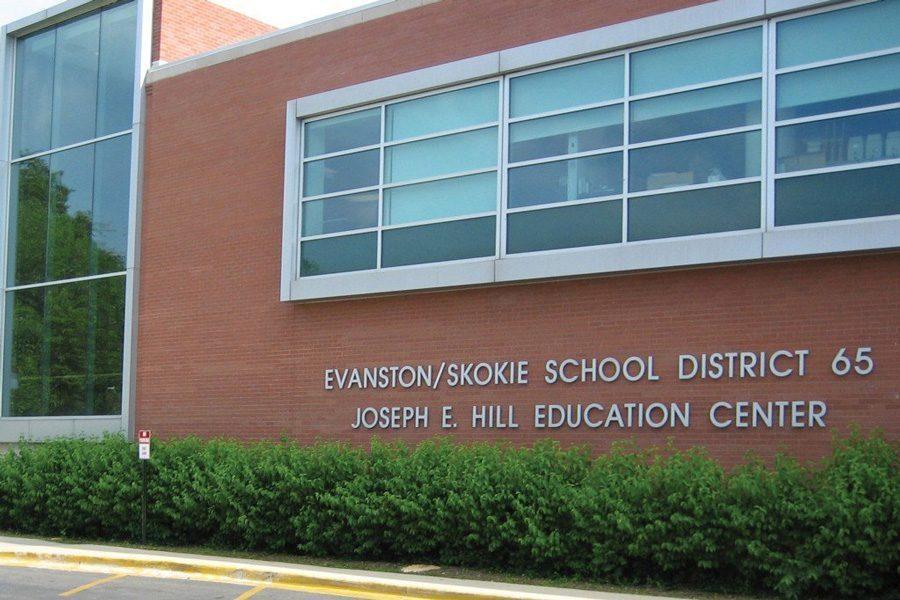D65 school board members introduce contingency plan in case referendum does not pass
Daily file photo by Patrick Svitek
The Joseph E. Hill Early Childhood Education Center holds the offices for Evanston/Skokie School District 65. On Monday, the district’s board passed a contingency plan should next month’s referendum fail to pass.
March 22, 2017
Although District 65 leaders hope voters pass a $14.5 million property tax referendum next month to prevent teacher layoffs and budget cuts for extracurricular and science programs, the district’s school board passed a contingency plan Monday in case the referendum does not pass.
The contingency plan would increase class sizes, reduce funding for athletic and music programs and diminish staff in the 18 schools D65 oversees. Parents, local officials and residents voiced their concerns about the plan at a meeting Monday.
Andy Ross, parent of two and member of the Committee to Save Our Schools, said his family moved to Evanston because his children were “stuffed” in classrooms of more than 30 students in Chicago. Ross said this had negatively impacted his children’s learning and warned against allowing “CPS-sized” classes in Evanston.
He said the district has added 1,500 students over the past 10 years. New students have cost about $20 million more annually to educate, Ross said, but only $3.5 million has been added to local property taxes, leading to a significant deficit.
“We have nowhere else to turn,” Ross said. “No bailout is coming from D.C. or Springfield, we must save ourselves. We all must vote ‘yes’ on April 4 for District 65 schools.”
During the meeting, residents discussed what school board president Candance Chow described as a “difficult set of decisions.” If residents vote in favor of the $14.5 million tax, the district won’t have to employ its contingency plan. But if the referendum does not pass, the district would have to act quickly to implement budget cuts by June 30.
According to the district’s website, homeowners would have to pay about $470 more on property taxes a year if the referendum passes, which would prevent D65 from laying off roughly 30 teachers and other support staff, assistant principals and employees at its main office.
Much of Monday’s debate centered on how these changes would be enacted and the impact they may have on the district’s diverse school system. Chow said the answer to many of these concerns is not “binary.”
“We do know that pretty much any of these have some level of impact on students, on classrooms and that’s certainly not lost on us,” she said. “Whatever reductions we chose will have an impact on our ability to deliver excellent education to our students. It will hamper our reach, it will hamper the depth of our impact.”
During the meeting, District 65 Educators’ Council president Paula Zelinsky condemned the board’s decision to inform teachers of potential staff cuts through a PowerPoint presentation. She also questioned the district’s definition of “equity,” saying the board’s proposed budget changes wouldn’t increase class sizes equally.
Zelinsky said some elementary school grades would see a larger increase in class size than others. According to the proposed plan, first-year classes would grow by three students and second-year classes would grow by five.
“There is certainly no common understanding on what is meant by ‘equity,’ it can often change depending upon who is in the room,” Zelinsky said. “Just know that you are deliberately creating a situation that is more inequitable for many students and classrooms that already exists.”
Email: [email protected]
Twitter: @marianaa_alfaro


